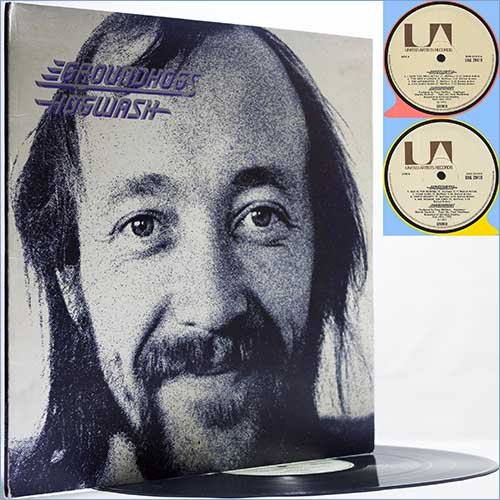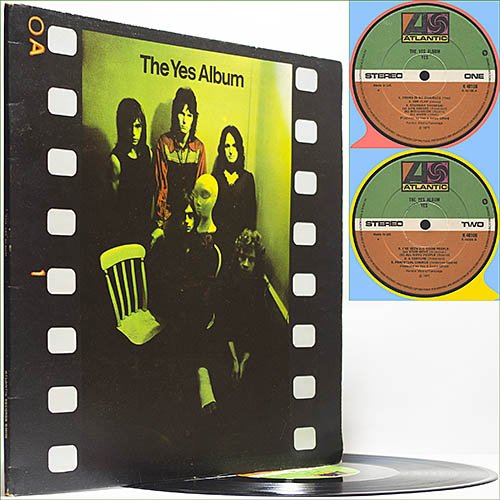Miles Davis - Miles '55 (Remastered 2025) 2025
Исполнитель: Miles Davis Альбом: Miles '55 (Remastered 2025) Жанр: Jazz, Hard Bop Год: 2025 Страна: USA Лейбл: Craft Recordings Формат: FLAC (tracks) Official DR value: DR13 Разрядность: 24bit / 96kHz Stereo, 24bit / 192kHz Stereo Размер: 2,35 GB Инфо: wiki Залито на: XFile (3% восстановление) «Exclusive for Lossless-Galaxy» Miles Davis had already turned heads at major New York venues like Birdland and Basin Street when he stepped back into Rudy Van Gelder’s living-room studio in Hackensack,
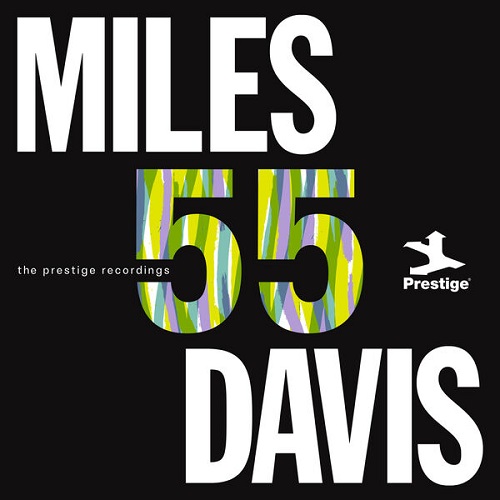
Miles Davis - Miles '55 (Remastered 2025) 2025
Исполнитель: Miles Davis Альбом: Miles '55 (Remastered 2025) Жанр: Jazz, Hard Bop Год: 2025 Страна: USA Лейбл: Craft Recordings Формат: FLAC (tracks) Official DR value: DR13 Разрядность: 24bit / 96kHz Stereo, 24bit / 192kHz Stereo Размер: 2,35 GB Инфо: wiki Залито на: XFile (3% восстановление) «Exclusive for Lossless-Galaxy» Miles Davis had already turned heads at major New York venues like Birdland and Basin Street when he stepped back into Rudy Van Gelder’s living-room studio in Hackensack,
25 08, 2025
Iron Savior - Reforged - Machine World 2025
Исполнитель: Iron Savior Альбом: Reforged - Machine World Жанр: Speed Metal, Power Metal Год: 2025 Страна: Germany (Hamburg) Лейбл: Perception Формат: FLAC (tracks) Official DR value: DR7 Разрядность: 24bit / 44.1kHz Stereo Размер: 1,0 GB Инфо: metal-archives Залито на: XFile (3% восстановление) «Exclusive for Lossless-Galaxy»

Iron Savior - Reforged - Machine World 2025
Исполнитель: Iron Savior Альбом: Reforged - Machine World Жанр: Speed Metal, Power Metal Год: 2025 Страна: Germany (Hamburg) Лейбл: Perception Формат: FLAC (tracks) Official DR value: DR7 Разрядность: 24bit / 44.1kHz Stereo Размер: 1,0 GB Инфо: metal-archives Залито на: XFile (3% восстановление) «Exclusive for Lossless-Galaxy»
25 08, 2025
Jack the Joker - The Devil to Pay in the Backlands 2025
Исполнитель: Jack the Joker Альбом: The Devil to Pay in the Backlands Жанр: Progressive Metal, Heavy Metal Год: 2025 Страна: Brazil (Fortaleza, Ceará) Лейбл: Frontiers Records s.r.l. Формат: FLAC (tracks) Official DR value: DR6 Разрядность: 24bit / 96kHz Stereo Размер: 1,41 GB Инфо: rockreport Залито на: XFile (3% восстановление) «Exclusive for Lossless-Galaxy» Jack The Joker is a modern progressive metal band with a twist, hailing from the Northeast of Brazil. The band consists of Raphael
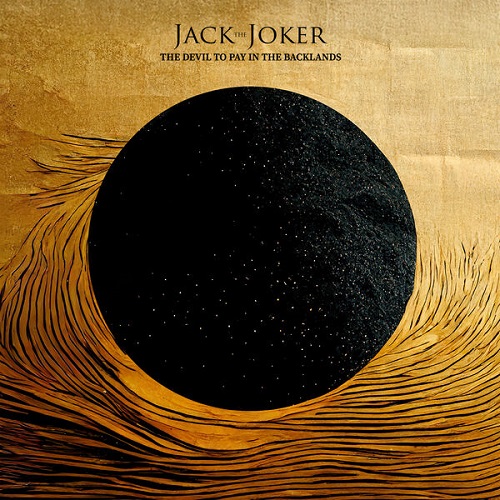
Jack the Joker - The Devil to Pay in the Backlands 2025
Исполнитель: Jack the Joker Альбом: The Devil to Pay in the Backlands Жанр: Progressive Metal, Heavy Metal Год: 2025 Страна: Brazil (Fortaleza, Ceará) Лейбл: Frontiers Records s.r.l. Формат: FLAC (tracks) Official DR value: DR6 Разрядность: 24bit / 96kHz Stereo Размер: 1,41 GB Инфо: rockreport Залито на: XFile (3% восстановление) «Exclusive for Lossless-Galaxy» Jack The Joker is a modern progressive metal band with a twist, hailing from the Northeast of Brazil. The band consists of Raphael
25 08, 2025
Жанры
Lossless Galaxy Release
Русская музыка
--Поп
--Рок
--Панк
--Альтернатива
--Металл
--Рэп, Хип-Хоп, R'n'B
--Джаз и Блюз
--Фолк
--Шансон, Авторская песня
--СССР
Зарубежная музыка
--Pop
--Rock
--Hard Rock
--Progressive & Art-Rock
--Pop-Rock & Soft Rock
--Instrumental Rock
--Heavy, Traditional, Industrial Metal
--Power, Gothic, Sympho Metal
--Thrash, Speed, Groove, Modern Metal
--Death, Melodic Death, Doom, Dark Metal
--Black, Pagan, Folk, Viking Metal
--Alternative
--Punk
--Disco, Eurodance
--Rap, Hip Hop, R'n'B
--Reggae, Ska, Dub
--Jazz, Blues, Soul
--Folk, Country, Ethnic
--Electronic, Ambient, New Wave
--House, Techno, Trance
Другие жанры
--New Age, Relax, Meditative & Flamenco
--Chillout, Lounge, Downtempo, Trip-Hop
--Drum & Bass, Jungle, Breakbeat, IDM
--Classical / Классическая музыка
--Soundtrack
--Музыкальные сказки
Vinyl Rip
HI-Res / DVD-Audio / DTS
--SACD
--DSD
--DVD-Audio
Сборники Lossless-Galaxy
Альбомы 2022
Альбомы 2023
Альбомы 2024
Теги
1st Press 2022 2023 2024 2025 70... AOR Black Metal Blues Blues Rock Bootleg Series Classic Rock Death Metal Discography Exclusive for Lossless-Galaxy Folk Rock Fusion Hard Rock Heavy Metal Hi-Res Japanese Edition Jazz Jazz Rock lossless Melodic Death Metal Melodic Rock Modern Electric Blues Pop Pop Rock Power Metal Prog Rock Progressive Metal Progressive Rock Psych Rock Psychedelic Rock Rock SACD Symphonic Metal Thrash Metal Дискографии от KoGGaN
Архивы
Опрос
В каком формате хотели бы видеть релизы на сайте ?
 Автор: LeddZepp, 26 июля 2020, Комментариев: 0, Просмотров: 1 162
Автор: LeddZepp, 26 июля 2020, Комментариев: 0, Просмотров: 1 162Fanny - Fanny Hill (1972) [Vinyl Rip]
![Fanny - Fanny Hill (1972) [Vinyl Rip] Fanny - Fanny Hill (1972) [Vinyl Rip]](/uploads/posts/2017-09/1505398234_fanny72fannyhill_500_lp.jpg)
Year: 1972 (LP 1972)
Label: Reprise Records (UK), K44174
Style: Rock
Country: United States
Time: 41:19
Format: Flac Tracks 16/44,1 kHz
Size: 247 Mb
Когда речь заходит об истоках женского рока, многие вспоминают "Runaways" или "Bangles", однако пальма первенства все же принадлежит "Fanny". И хотя их популярность не могла равняться с вышеупомянутыми коллективами, именно "Фанни" были первой девчачьей командой, выпустившей альбом на мажорном лейбле. А началось все в 1961 году, когда рожденные на Филлипинах сестры Джун и Джин Миллингтон прибыли в Калифорнию. Попав в незнакомую страну, девушки старались укреплять свой дух музыкой и вскоре организовали семейный фолк-дуэт. Впрочем, вдвоем они пробыли недолго, и их ансамбль, названный "The Svelts", разросся до квартета. Состав группы неоднократно менялся, а в 1968-м партнершами Джун (гитара) и Джин (бас) стали Эдди Клемент (гитара) и Элис де Бер (ударные). Обе они на следующий год откололись и основали другой герл-бэнд "Wild Honey", но позже воссоединились с Миллингтон.
Команда так и осталась работать под маркой "WH", а исполняемый ею репертуар теперь состоял из каверов фирмы "Motown". С намерением заполучить хоть какой-нибудь контракт девушки атаковали лос-анджелесские клубы, однако их никто не воспринимал всерьез, и лишь когда они засобирались домой в Сакраменто, на "Wild Honey" обратил внимание продюсер и представитель "Warner Brothers" Ричард Перри. Он углядел в девчонках неплохой потенциал и быстренько пристроил их на уорнеровский филиал "Reprise Records".
На тот момент Эдди уже успела испариться, а Перри посоветовал не искать другую гитаристку, а взять на ее место клавишницу.
Нужная кандидатура нашлась в лице Никки Барклай, но не успела группа как следует засесть в студии, как та умотала в турне вместе с Джо Кокером. Лишь по ее возвращении с гастролей процесс подготовки альбома пошел полным ходом, и в 1970 году дебютник "Fanny" (так теперь назывался ансамбль) попал на прилавки. По настоянию Перри эта соул-блюз-фанковая пластинка была составлена в основном из оригинального материала, но парочка треков (в том числе и "сливочный" "Badge") носили заимствованный характер. Хотя творчество "Fanny" понравилось таким исполнителям как Джордж Харрисон, Дэвид Боуи, "Deep Purple", "Rolling Stones", "The Who", "Kinks", Род Стюарт и т.д., рекламная кампания "Reprise", проходившая под девизами "Get Behind Fanny" и "Fanny: The End Of An Era", не возымела должного действия ни на критиков, ни на покупателей.
Куда более тепло публика приняла вторую полнометражку группы, "Charity Ball". Заглавный трек проник в биллбордовский Топ 40, а сопутствующее британское турне, проведенное на разогреве у "Jethro Tull" и "Humble Pie", прошло с большим успехом. По стилю "Charity Ball" мало отличался от первенца, а из каверов на альбоме был всего один трек –"Special Care"
Стивена Стиллса. Карьера "Fanny" набирала обороты, и в 1972 году девушки выпустили свой, пожалуй, лучший диск, "Fanny Hill". Записанный в битловской студии "Apple", альбом открывался шестидесятническим хитом Марвина Гэя "Ain't That Peculiar".
За ним следовали лиричная вещица от Никки "Knock On My Door" и хард-роковый боевик "Blind Alley", а, кроме того, можно было отметить очаровательную композицию Джин "Wonderful Feeling", перекликающуюся с ней по настроению песню Джун "Think About The Children", кавер ливерпульской четверки "Hey Bulldog" и блюз-буги "Rock Bottom Blues".
После "Fanny Hill" никто уже не кидал на девушек косых взглядов, и "Fanny" спокойно и успешно гастролировали по городам Европы и Америки. Тем не менее, перемены были не за горами, и это проявилось на диске "Mother's Pride". Ричарда Перри за продюсерским пультом заместил Тодд Рандгрен, и под его руководством команда записала балладно-ориентированный и тяготеющий к фолку и кантри альбом. По окончании сессий в группе разразился крупный скандал, в результате чего из состава одна за другой вылетели Элис и Джун.
Вакансию поющей гитаристки заняла Патти Куатро (сестра Сюзи Куатро), а на ударные вернулась Брай Брандт, работавшая с сестрами Миллингтон еще в бытность "The Svelts". Переместившись с "Reprise" на "Casblanca Records", коллектив вернулся с весьма задорной пластинкой "Rock And Roll Survivors", и хотя сингл "Butter Boy" поднялся в "Billboard" до 29-й строчки, внутренние проблемы в "Fanny" усилились. В конце 1974-го невзлюбившая Патти, ушла Никки, потом ввиду замужества Брай за ударными очутилась Кэм Дэвис, но в начале 1975-го барабанщица отбыла вместе с Куатро. Весной того же года Джин вместе с сестрой и Брандт попыталась устроить очередные гастроли, однако затея провалилась, и группа распалась.
(rockfaces.ru; Last update 15.05.11)
20 альбомов 70-х годов, которые вы должны послушать сегодня. ("Rolling Stone" Magazine).
В Великобритании название группы вызвало бурный протест общественности. Дело в том, что в Америке слово Fanny означает "зад", а в Великобритании "vagina". В 70-е группа играла на разогреве у Slade, Jethro Tull и Humble Pie.
(Dangerousminds_net)
Recorded at Apple Studios, London, England, December 4-18, 1971. Быстро работают девчонки. Fanny на обложке конверта их первого альбома 1972 года Fanny Hill (слева направо: Jean Millington, June Millington, Alice de Buhr, Nickey Barclay).
Jean Millington: bass guitar, vocals
June Millington: guitar, vocals
Nickey Barclay: keyboards, vocals
Alice de Buhr: drums, vocals
Matrix side A: K 44174 AI, K 44174 BI
01. A1 Ain't That Peculiar (04:01)
02. A2 Knock On My Door (03:19)
03. A3 Blind Alley (04:29)
04. A4 You've Got A Home (03:45)
05. A5 Wonderful Feeling (03:15)
06. A6 Borrowed Time (03:28)
07. B1 Hey Bulldog (03:50)
08. B2 Think About The Children (04:08)
09. B3 Rock Bottom Blues (03:06)
10. B4 Sound And The Fury (03:03)
11. B5 The First Time (04:49)
Listen. Full Album: Fanny - Fanny Hill (1972) Vinyl Rip
![Fanny - Fanny Hill (1972) [Vinyl Rip] Fanny - Fanny Hill (1972) [Vinyl Rip]](https://thumbs2.imagebam.com/35/3e/b3/0450901350115408.jpg)
![Fanny - Fanny Hill (1972) [Vinyl Rip] Fanny - Fanny Hill (1972) [Vinyl Rip]](https://thumbs2.imagebam.com/96/18/b3/774c401350115411.jpg)
![Fanny - Fanny Hill (1972) [Vinyl Rip] Fanny - Fanny Hill (1972) [Vinyl Rip]](https://thumbs2.imagebam.com/31/6f/b9/8ce0f11350115413.jpg)
![Fanny - Fanny Hill (1972) [Vinyl Rip] Fanny - Fanny Hill (1972) [Vinyl Rip]](https://thumbs2.imagebam.com/7d/dc/4c/ab3cdf1350115415.jpg)
![Fanny - Fanny Hill (1972) [Vinyl Rip] Fanny - Fanny Hill (1972) [Vinyl Rip]](https://thumbs2.imagebam.com/f1/2f/d5/8a863e1350115419.jpg)
![Fanny - Fanny Hill (1972) [Vinyl Rip] Fanny - Fanny Hill (1972) [Vinyl Rip]](https://thumbs2.imagebam.com/1e/5f/d3/3015121350115421.jpg)
При желании можно посмотреть все мои публикации на сайте. Приятного прослушивания. Жмём и смотрим (Click to see all of my posts)!
Внимание! У Вас нет прав для просмотра скрытого текста.
Изменил: LeddZepp по причине: Обновил ссылки и описание.
Похожие новости:
Комментарии отсутствуют
Добавить комментарий!
Информация
Посетители, находящиеся в группе Гости, не могут оставлять комментарии к данной публикации.

![Budgie - Squawk (1972) [Vinyl Rip]](/uploads/posts/2020-05/1589440977_budgie73squawk_500_lp.jpg)
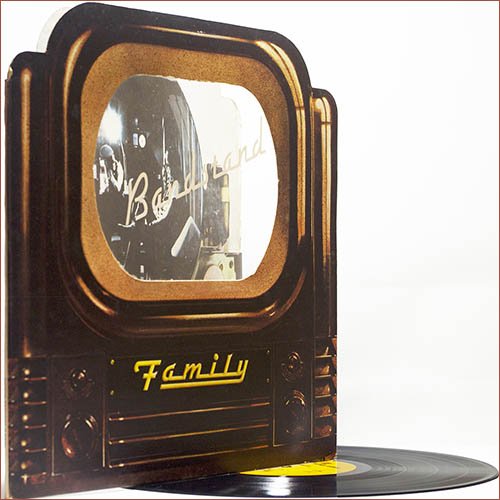
![Stone The Crows - Ontinuous Performance [Vinyl Rip] (1972)](/uploads/posts/2022-08/stonethecrows72ontinuous_500_lp.jpg)
